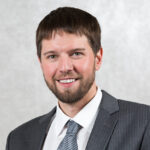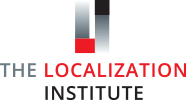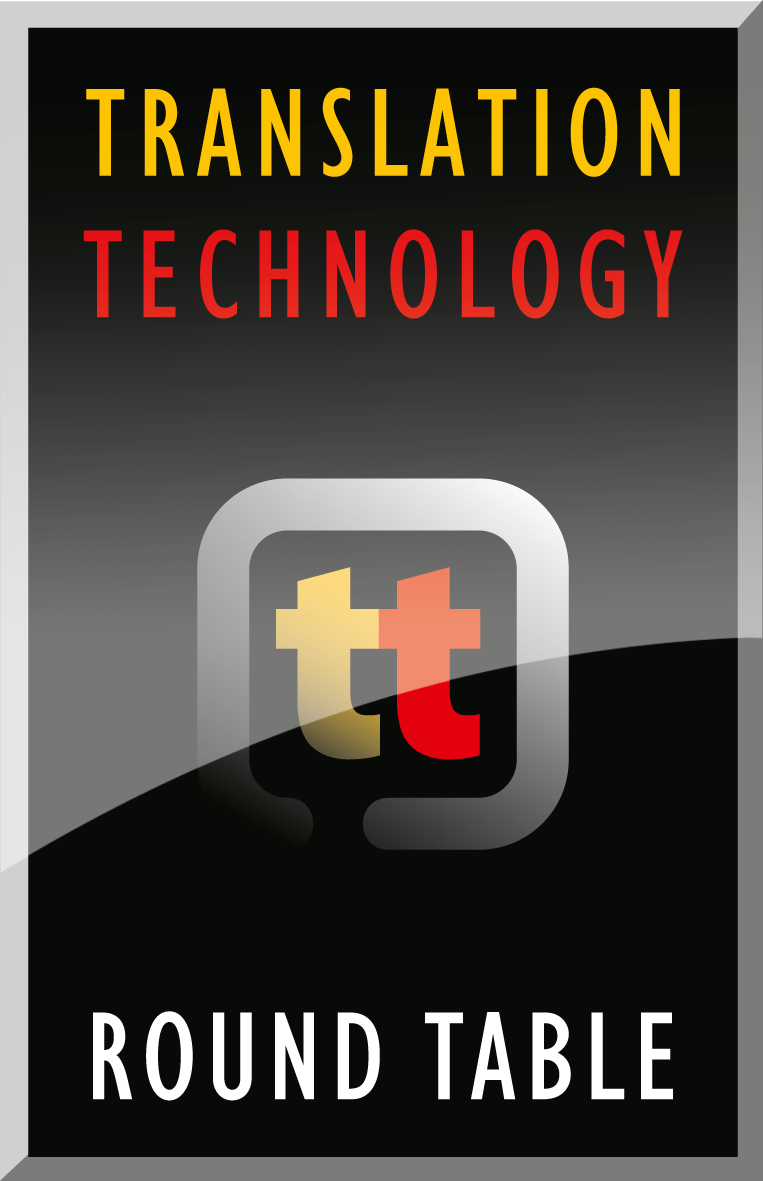At The Intersection Of Translation Technology And Generative AI

A Wrap-up Of The Recent Loc Institute Round Table In Boulder
Sunny and mild Boulder, Colorado welcomed The Localization Institute’s recent Translation Technology Round Table, held on the beautiful, historic campus of The Colorado Chautauqua. Following an Opening Reception on Sunday night at Avanti F+B, a food hall in downtown Boulder, the round table activities started early on Monday morning, January 29th in The Rocky Mountain Climbers Club at Chautauqua, where groups have been meeting for over a century with the mission of sharing fellowship and fostering learning in a safe and cozy environment.

As an event planner for The Localization Institute, organizing intimate round table events and discussions is my passion because they always produce the most meaningful experiences for attendees of any of the events we create. With round tables, attendee interactions and contributions are key to developing the flow and determining the direction of each session.
Unlike with traditional conferences where attendees generally just sit and listen to presentations from speakers with limited opportunities to participate other than in Q&A, round tables bring everyone (advisory board members, speakers and attendees alike) into open discussion. This allows for the workshopping of ideas and sharing of experiences in a way that transcends the standard one-directional conference structure.
There is no better setting than The Colorado Chautauqua for this type of event, because everyone dines together and most attendees stay in cabins or the lodges on site. This creates a unique feeling of fellowship and camaraderie and leads to lasting memories and learning experiences that stay with attendees forever.
This particular round table was led by the enigmatic Richard Sikes (Principal Consultant at Localization Flow Technologies), who’s decades-long passion for translation technology has helped steer this round table through many iterations and across many locales from California to Germany and now to Colorado. Richard organized and convened the Advisory Board for the event and helped guide the development of the round table agenda and program. His excitement and evangelism for gathering localization practitioners into a room to hash out intricate solutions to the diverse challenges facing the industry makes this an event not to be missed.
The round table began with a “Reality Check” into the hype around LLMs and generative AI and their effect on the translation and localization processes of global organizations. Led by industry veteran and solutions expert Erik Vogt (Vogt Strategy), the discussion focused on the development and deployment of large language models (LLMs) and whether all of the hype and investment is actually paying dividends.
From here, the discussion turned to the hottest current topic of “Prompt Engineering” for managing generative AI applications. Smartling’s VP of AI, Olga Beregovaya gave an impressive overview of the current best practices for crafting intelligent prompting of generative AI systems and also the important setup task of properly managing language data and training LLMs to avoid the old adage of “garbage in, garbage out” that has always plagued the use of machine translation.
The third session of day 1 was led by Gitlab’s Oleksandr Pysaryuk and Richard Sikes and examined the challenges of geo-specific content creation, managing the risks of decentralized regional content and whether cross-lingual content creation can function in the context of user forums. And the final session of the intense first round table day discussed migrations between systems, technologies and standards. XTM International’s John Weisgerber oversaw a deep dive into why many migrations often fail, what things tend to get lost in the process, and best practices for understanding stakeholder needs and then overcoming the technical and human obstacles that are resistant to the necessary changes taking place.
Both round table days featured an “open Grab Bag” session where attendees were asked to suggest topics and then vote as a group to determine which issues the group would dedicate time to addressing. I always enjoy watching the democratic nature of these sessions and seeing the satisfaction of our attendees as they are able to shift the group focus directly on issues near and dear to them. When first seeing the agenda, people often even express concern and dismay that some big segments are left undefined but after experiencing these “unconference” sessions, a majority will report back to us that these were their favorite sessions. Giving participants the opportunity to determine their own topics is an exercise in empowering their individual voices and it creates a different kind of value than they imagined was possible from an event.
That evening, everyone dined together in the historic Chautauqua Dining Hall, where Braised Bison, Coq Au Vin, Stuffed Delicata Squash and several other local Colorado entrees were served and paired with regional wine and beer. Enjoying meals together adds to the intimacy and fellowship at our round table events and these moments help transform professional connections into lifelong friendships.
Our second round table day began on Tuesday, January 30th with a short presentation from Paula Hunter (Round) on using automation to streamline tasks and perform higher quality work with less manual effort. She then expertly moderated the round table discussion, getting everyone to talk about at least one automated task that has improved their workflows and productivity which fed into a broader discussion of the pros and cons and ongoing struggles with implementing further automation at everyone’s organizations.
Our final session was co-organized and moderated by Oleksandr Pysaryuk and John Weisgerber and examined the shift towards continuous localization. In considering the effect that the Docs as Code philosophy is having in the broader technology sector, we discussed the new localization ethos called LangOps. This very forward-looking discussion was a great bookend to the entire two-day round table event and allowed for some very exciting crystal ball predictions from each of the attendees. The final Grab Bag session addressed several more of the most popular topics voted on by attendees and brought the round table discussion full circle. It was time to adjourn.
As everyone filtered back out into the radiant afternoon sunshine under a clear, Colorado-bluebird sky, we basked in the marvelous 60-degree temperatures and listened to the birds singing as folks said their heartfelt goodbyes to each other. The 2024 edition of the Translation Technology Round Table was over but everyone was already talking about plans to come back again next year for the next edition. Many thanks go to Richard Sikes for putting together such a great round table and to our capable and experienced advisory board members for their presentations, for moderating our lively discussions and for offering both mentorship and friendship to all of our attendees. It was time now for everyone to go home. We’ll see you next year Boulder! If you missed this one, don’t risk FOMO again, keep your eyes peeled for an announcement of the dates of the next Translation Translation Round Table soon. You can already sign up to save-a-seat for the next round table here.
Here are just a few of the testimonials that round table attendees provided us:
I can’t possibly overstate the value of the round table and the amazing collaborative spirit fostered by the organizers.
Olga Beregovaya, VP of AI at Smartling
I enjoyed the humble conversations and exchanges with my industry peers.
Konstantin Savenkov, CEO at Intento
This was a fantastic event! The topics were timely and relevant to our changing industry, and also customizable thanks to “unconference” style sessions. I came away with a much better sense of which translation technology challenges my team is facing that are shared by many others, and which are unique. I also gained valuable insight into the strengths and weaknesses of our localization program from a technology perspective. I also received some advice from industry peers about a large upcoming technology selection and implementation project. On a personal level, I grew my network to include some fantastic industry contacts who have been generous with their time and advice.
Jeremy Bailey, Technology Manager at Nintendo
I appreciated the creation of a “safe space” for the exchange of ideas and information.
Maureen Garelick, Team Lead, Custom Programs at Vistatec
I really liked the format of the round table, which allows us to be connected with fellow professionals and to exchange ideas. The topics discussed were relevant and engaging and I really appreciate the collaborative atmosphere.
Yali He, Localization Producer at Epic Games
Advisory Board Member and Discussion Leader Paula Hunter used Generative AI to create this image for our round table and I think it perfectly encapsulates the relaxed and collaborative vibe we had for the conversations taking place on the historic grounds of the Colorado Chautauqua in Boulder.

Disclaimer: Copyright © 2021 The Localization Institute. All rights reserved. This document and translations of it may be copied and furnished to others, and derivative works that comment on or otherwise explain it or assist in its implementation may be prepared, copied, published, and distributed, in whole or in part, without restriction of any kind, provided that the above copyright notice and this section are included on all such copies and derivative works. However, this document itself may not be modified in any way, including by removing the copyright notice or references to The Localization Institute, without the permission of the copyright owners. This document and the information contained herein is provided on an “AS IS” basis and THE LOCALIZATION INSTITUTE DISCLAIMS ALL WARRANTIES, EXPRESS OR IMPLIED, INCLUDING BUT NOT LIMITED TO ANY WARRANTY THAT THE USE OF THE INFORMATION HEREIN WILL NOT INFRINGE ANY OWNERSHIP RIGHTS OR ANY IMPLIED WARRANTIES OF MERCHANTABILITY OR FITNESS FOR A PARTICULAR PURPOSE.

















